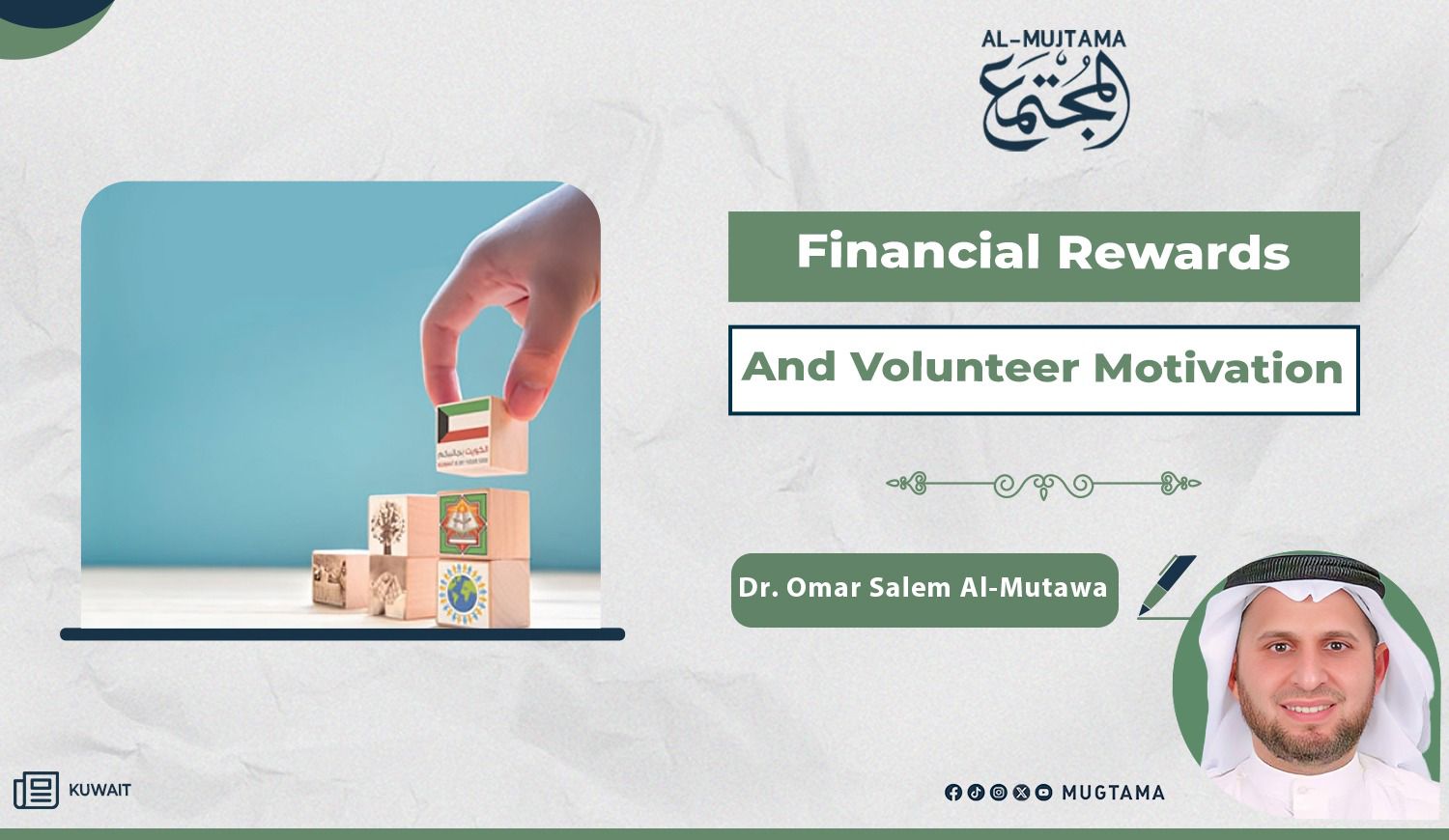Financial Rewards and Volunteer Motivation

In my book, "The
Conscious Volunteer," I covered
several topics that contribute to the development and excellence of volunteer
organizations and teams. In this article, I want to highlight a management
practice used by some volunteer and non-profit organizations: offering
"financial rewards to volunteers" to motivate them to give and
continue their volunteer work.
There's no doubt that a financial
reward is an incentive for a volunteer, even though it contradicts the
universally accepted definition of a volunteer, person who performs volunteer
work without any material compensation. However, some volunteer organization
managements may feel compelled to offer "financial rewards" to
maintain the continuity of their volunteers' contributions, mistakenly believing
that this incentive will play a major role in keeping them engaged.
Rewards are Necessary
Therefore, in this article, I wanted
to present a summary of an excellent study conducted by researchers Goette and Frey
in 1999 on the effect of "financial rewards" on volunteers. The
study's sample was a volunteer organization in Switzerland, and the researchers
compared the performance of volunteers when they received no material
compensation with their performance after they began receiving regular
financial rewards.
The study's results showed that the
performance of the volunteers who received financial rewards was negatively
affected compared to when they were doing the work without any material
compensation. The study also noted that the average number of hours worked by a
volunteer decreased by approximately four hours compared to before the rewards
were given.
Financial Rewards
Studies like this make us realize that
offering a material incentive to volunteers may not be an effective way to
motivate them and enable them to achieve the organization's mission in the
community. If a volunteer or non-profit organization
decides to offer regular "financial rewards" to volunteers, they
should treat them as full-time or part-time paid employees, with clear work
contracts that include rights, duties, and required job tasks. This will help
avoid the negative repercussions of such financial rewards on the volunteer organization's
work environment.
The topic of "motivating
volunteers" is closely tied to the extent of satisfaction the
volunteer feels from joining the volunteer work through the team or
organization, or, in other words, to what extent the organization has satisfied
the need that drove the volunteer to join.
Several Negative Effects
There are several negative effects
from extensively offering rewards to volunteers. I'll mention the following:
- A decline in the organization's capacity to deal
with and attract volunteers.
This causes the organization to lose a fundamental human resource that
contributes to achieving its mission in the community.
- The limited financial resources of volunteer and
non-profit organizations
conflict with extensively offering financial rewards. This can result in a
lack of liquidity or the misuse of funds.
- Offering rewards indirectly affects several
aspects, including a reduced
focus on motivating volunteers and attracting new ones, a change in
motivations, and a clear reflection of this in the organization's work
environment and culture. It also leads to less investment, focus, and
attention on coordinating between work units, volunteers, and paid
employees, as the easiest solution for performing a task becomes hiring
and giving a reward for the required tasks to be completed.
In conclusion, while preparing my
doctoral dissertation on "Administrative Practices and Their Effect on Volunteer
Motivation, Satisfaction, and Retention in the Organization for the Longest
Period," I was struck by a valuable piece of information. It was a
recommendation from a scientific conference held in Switzerland on volunteer
topics. The information was: "Expanding the activities and scope of a
volunteer or non-profit organization requires focusing and investing in
coordination, and giving it the highest priority, if the organization wants to
maintain its brilliance and success in performing its mission."
This might interest you too…
5
Reasons Why Kuwait Is a Capital of Humanitarian Work
Namaa
Charity Calls for Technical, Digital, and Cultural Literacy












